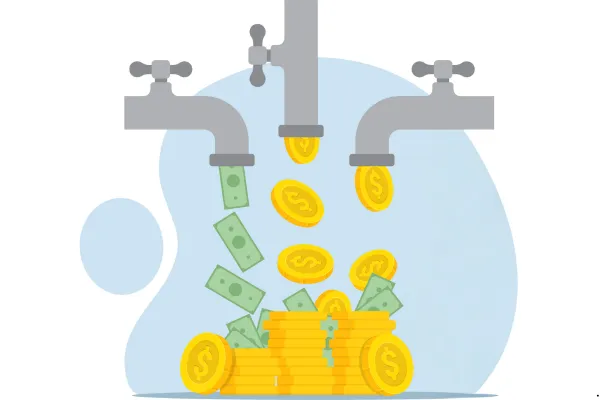
Diversifying Income Streams in the Recovery Housing Sector
Diversifying Income Streams in the Recovery Housing Sector
In an increasingly competitive recovery housing landscape, relying solely on resident fees creates unnecessary financial vulnerability. Savvy sober living operators are discovering that diversification not only strengthens their financial foundation but often enhances their core mission. Here's how forward-thinking recovery residences are expanding their revenue options while staying true to their recovery-focused values.
Beyond the Monthly Rent Check
The traditional model of collecting weekly or monthly resident payments remains the backbone of most recovery housing operations. However, this approach leaves operators vulnerable to occupancy fluctuations, payment delinquencies, and market pressures. Implementing these additional revenue sources can create greater stability:
Recovery Support Services Billing
Many states now recognize and reimburse recovery support services through Medicaid or state funding. By adding structured peer recovery support, certified recovery specialists, or recovery coaching programs, operators can access these funding streams. This approach not only diversifies income but enhances the recovery environment through additional support services.
Educational Workshops and Training
Your expertise in recovery housing operations holds significant value. Consider developing training programs for:
New house managers and staff
Families supporting loved ones in early recovery
Treatment centers seeking discharge planning resources
Other recovery residence operators
These educational offerings can be delivered through online courses, in-person workshops, or consultation services.
Strategic Partnerships
Develop mutually beneficial relationships with complementary organizations:
Treatment providers seeking quality discharge options
Recovery community organizations needing meeting space
Healthcare systems addressing social determinants of health
Educational institutions training addiction professionals
Such partnerships can generate referral fees, space rental income, or contracted service revenue.
Specialized Programming
Consider developing fee-based specialty tracks within your housing program:
Employment readiness programs
Financial literacy workshops
Wellness and nutrition services
Life skills development courses
These add-on services can command premium fees while enhancing resident outcomes.
Grant Funding and Donations
While not traditionally pursued by for-profit recovery residences, various funding sources are increasingly open to quality operators:
Recovery Housing-Specific Grants
Federal, state, and local initiatives increasingly recognize recovery housing as an essential recovery support. The SUPPORT Act, state opioid response grants, and housing department funds often include allocations for recovery housing. Even for-profit operations may qualify by demonstrating service to vulnerable populations.
Foundation Support
Private foundations focusing on recovery, housing stability, or community health may support specific projects or capacity-building efforts. While ongoing operational funding is rare, targeted initiatives like scholarship beds or facility improvements often appeal to foundation funders.
Community Support Programs
Consider creating a scholarship bed program funded by community donations. This allows businesses, faith communities, and individuals to directly support recovery housing access for those with financial barriers.
Implementation Considerations
As you explore diversification strategies, keep these principles in mind:
Mission Alignment: Every additional revenue stream should support, not detract from, your core purpose of fostering recovery.
Regulatory Compliance: Ensure new services meet applicable licensing and certification requirements.
Start Small: Test new revenue streams on a limited basis before significant investment.
Track ROI: Measure the true profitability of each stream, accounting for all related expenses.
Client-Centered Focus: Prioritize approaches that enhance, rather than exploit, the recovery journey of your residents.
Financial sustainability and recovery support are not competing goals—they're complementary necessities for making a lasting impact. By thoughtfully diversifying revenue streams, recovery residence operators can weather financial challenges while expanding their mission's reach.
Final Thoughts
Diversifying your income streams in the recovery housing sector isn’t just smart business—it’s a way to strengthen your mission, support your residents more holistically, and protect your operations from financial uncertainty. Whether you’re just starting out or looking to grow, adding new revenue streams can empower your sober living business to thrive long term.
Ready to Build a Sustainable, Mission-Driven Sober Living Business?
If you're serious about launching or scaling your sober living home the right way—with multiple income streams, reliable systems, and community impact—Sober Living School is here to help.
Our coaching program includes:
Step-by-step business training
CRM and website tools
Financial calculators
Marketing templates
Ongoing support from experienced operators
💡 Join with others who are turning their passion into a thriving sober living business.
👉 Get Started Now at SoberLivingSchool.com
